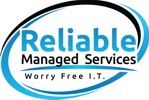Managing Your Computer Network: Could Managed Network Services Be Right for You?
 There comes a point when every organization must make a decision about its network management.
There comes a point when every organization must make a decision about its network management.
For small and midsize businesses: Should we really be managing our network ourselves?
For larger enterprises: Which aspects of network management should we outsource?
If your business has a network that meets any of the following criteria, then it is time to consider managed network services:
- Connects multiple offices, stores, or other sites
- Is growing beyond the capacity of current access lines
- Must provide secure connectivity to mobile and remote employees
- Could produce cost savings by integrating voice and data traffic
- Needs to be ready for more traffic from video and other high-bandwidth applications
- Is becoming more difficult to manage and ensure performance and security, especially given limited staff and budget resources
In a managed network services solution, you outsource the day-to-day operation and management of your network to a managed services provider. Outsourced network management offers a viable option for most communications services, including:

- Network connections: Broadband Internet access—including T1, bonded T1, business Ethernet, DS3, DSL, cable, and wireless broadband
- Remote access: Virtual private networks (VPNs) based on Secure Sockets Layer (SSL) and Multiprotocol Label Switching (MPLS) that use the Internet to provide remote sites and users with secure access to an internal business network
- Voice: Carrying voice and data traffic on the same circuits
- Network security: Comprehensive management of security elements to mitigate network intrusions, attacks, viruses, spam, and other threats
A managed services provider can consolidate, integrate, and manage all of these network services—giving organizations cost-effective ways to connect their business locations to each other, the Internet, and business partners.
Why Not Manage Your Own Network?
 Of course, it is possible—but not always easy or cost-effective—for organizations to internally manage their own networks.
Of course, it is possible—but not always easy or cost-effective—for organizations to internally manage their own networks.
Consider the following challenges of in-house network management:
Business Factors:
- Reducing network overhead costs while increasing network services
- Implementing a global network service without internal global resources
- Supporting dynamic business growth with restricted budgets and staffing levels
- Needing to respond quickly to time-to-market demands
- Implementing new technologies to maintain competitiveness
- Supporting new business operations and markets or integrating acquisition
Network Operations:
- Managing, maintaining, and upgrading network infrastructure and management systems
- Delivering high-quality, high-availability network services to meet 24-hour demand
- Defining and monitoring Quality of Service (QoS) and Class of Service (CoS) parameters to prioritize voice traffic and ensure call quality
- Securing data, transactions, and communications to keep up with the latest security threats, as well as meeting privacy and security regulations
- Delivering services to more remote offices and workers
Staffing:
- Finding, recruiting, and retaining certified network professionals
- Helping staff stay current with new technologies and skills
- Focusing employees on core competencies and mission-critical processes, rather than network support
Given the difficulty of these challenges, outsourcing network management is rapidly becoming the preferred alternative for many organizations.
Which Managed Network Services Provider Is Right for You?
 After deciding to explore managed services, the next step is finding the right provider. With so many types of providers offering a range of services and management models, the choices can be confusing. Understanding the different types of service providers is the first step in making the right decision. IT managers may initially think of the large telecom carriers as potential managed network services vendors. It is important to note that although large carriers sell hosted network services to small and mid-size businesses, their real focus is on large enterprises networks. Even for large enterprises with geographically-dispersed locations, services, and network needs, the managed network services offered by large carriers may not be the best-fit or the most cost-effective solution. With Reliable Managed Services you can choose if you want fully managed network access, voice or security services, or a combination of individual services that match your business needs and internal network management resources. In addition, we can scale services to fit as your organization’s needs evolve.
After deciding to explore managed services, the next step is finding the right provider. With so many types of providers offering a range of services and management models, the choices can be confusing. Understanding the different types of service providers is the first step in making the right decision. IT managers may initially think of the large telecom carriers as potential managed network services vendors. It is important to note that although large carriers sell hosted network services to small and mid-size businesses, their real focus is on large enterprises networks. Even for large enterprises with geographically-dispersed locations, services, and network needs, the managed network services offered by large carriers may not be the best-fit or the most cost-effective solution. With Reliable Managed Services you can choose if you want fully managed network access, voice or security services, or a combination of individual services that match your business needs and internal network management resources. In addition, we can scale services to fit as your organization’s needs evolve.
The MSP should focus on understanding your unique service needs and meeting them with a business orientation that goes beyond offering all customers a “cookie cutter” solution. The provider should offer network connectivity in a variety of access speeds from DSL to DS3, allowing you to select the right speed for each user or remote location. The broadband access service should offer a high-speed “always on” connection in a nationwide connectivity solution that is easy to deploy, manage, and support.
The MSP should also offer business-class hosted voice services in a range of equipment and feature packages with low start-up costs and affordable monthly fees. To ensure superior quality on voice calls, the MSP should maintain high QoS levels for voice traffic and guaranteed levels of service uptime.
Network, Voice and Security Operations Capabilities
The service provider should support and proactively monitor its data, voice, and security services on a 24/7/365 basis from multiple redundant Network Operations Centers (NOCs) and Security Operations Centers (SOCs). A dedicated support infrastructure ensures that the network services perform to their maximum potential, and that customers receive timely and responsive technical support.
The provider should also give customers complete visibility into network status and performance via a Web-based customer information portal, so great service is extended to self-service capabilities.
Certified Professionals and Industry Partnerships
Delivering high-quality managed network services requires highly knowledgeable and skilled network professionals, as well as partnerships with leading equipment and network capacity vendors. Ask a potential MSP about the professional certifications held by its employees and its participation in vendor partnership programs.
The Importance of Service Level Agreements
Service Level Agreements (SLAs) are a valuable tool for assessing how well a managed services provider maintains high levels of network performance and availability. These measurements guarantee overall network uptime, as well as response and resolution times for network problems.
Understanding Managed Services
Managed network services are typically offered by a managed services provider (MSP) on a subscription basis, with a monthly fee that reflects the network services, bandwidth, number of users, equipment, and service level agreement (SLA) performance levels covered by the customer contract.
The MSP staff monitors the health and availability of the subscriber’s network equipment and services to ensure they operate smoothly and securely. A managed services provider also offers a single point of contact for network trouble reports and a fulltime help desk for user support.
Advantages of Outsourcing to an MSP
 More than ever, businesses are achieving increased operational efficiencies while lowering network costs by using managed data, voice, and security services. Some of the benefits of relying on a managed services provider include:
More than ever, businesses are achieving increased operational efficiencies while lowering network costs by using managed data, voice, and security services. Some of the benefits of relying on a managed services provider include:
Cost Savings:
- Predictable monthly fee for network and management services; pay only for the networking services used
- Cost savings of up to 50 percent by consolidating voice and data services onto a single network
- Access to leading network technologies and management expertise, without high capital expenditures or ongoing investments in upgrades, IT staffing, and maintenance resources
- A single point of contact reduces network costs and simplifies vendor management for IT staff
- Using outsourced expertise avoids the costs of developing management and reporting capabilities
Simplified Management:
- Proactive management of network services through 24/7/365 monitoring of connectivity and equipment, automatic fault notification, and responsive trouble management
- IT staff remains free to focus on strategic activities, instead of network support
- Well-defined Service Level Agreements (SLAs) guarantee response and resolution times for network problems to minimize impact on users
